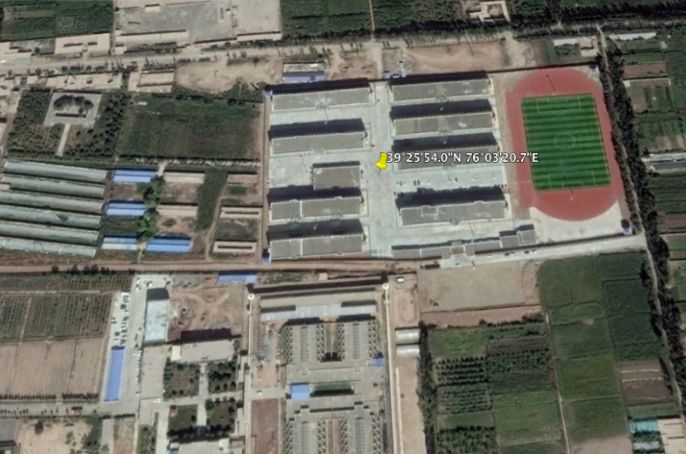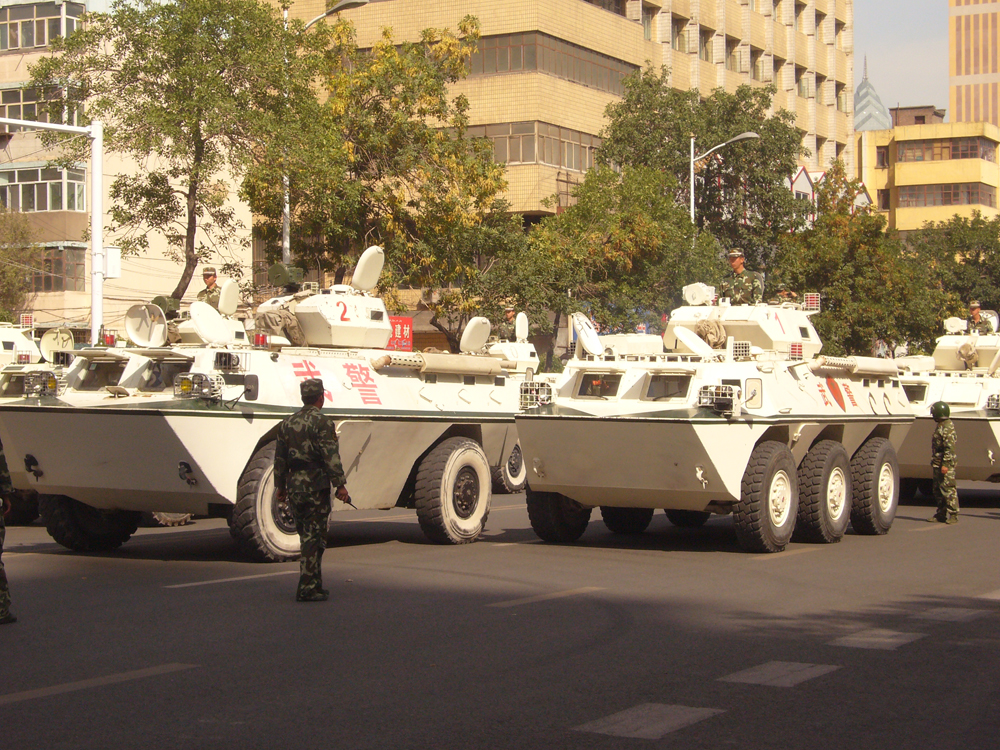Chinese authorities punish and control ethnic minorities in Xinjiang because of their identities, NGO Human Rights Watch said in a new report released on Monday.
The organisation described Chinese authorities’ systematic detention and surveillance of the region’s predominantly Turkic Muslim population through “fine-grained” restrictions on movement and religious practices. This includes holding ethnic minorities incommunicado in extrajudicial detention centres and forcing detainees to attend political indoctrination meetings.

The 117-page report is based on interviews with 58 former residents of Xinjiang from all 14 prefectures, including five former detainees and 38 relatives of detainees. Among those interviewed, 19 left the region after January last year.
‘To cure ideological diseases’
Human Rights Watch said that the Chinese government justified its harsh campaign by saying it secures regional stability by targeting terrorists and extremists. “The authorities have envisioned these systems as a series of ‘filters,’ picking out people with certain behaviour or characteristics that they believe indicate a threat to the Communist Party’s rule in Xinjiang,” the report said.
President Xi Jinping ordered a “strike hard” government campaign to tackle unrest across Xinjiang in 2014, following riots among Uighur groups in 2009 which mostly targeted the Han Chinese majority. According to Human Rights Watch, levels of repression have increased dramatically since hard-line official Chen Quanguo was transferred to the region in 2016.

The report quoted a Xinjiang branch of the Chinese Communist Youth League as saying last year: “The training has only one purpose: to learn laws and regulations… to eradicate from the mind thoughts about religious extremism and violent terrorism, and to cure ideological diseases. If the education is not going well, we will continue to provide free education, until the students achieve satisfactory results and graduate smoothly.”
Those targeted in the crackdown include Uyghurs, Kazakhs and Turkic Xinjiang residents.
‘Always under stress’
Human Rights Watch said there have been reports of deaths in political education camps, raising concerns over poor medical care, suicide attempts, harsh punishments for disobedience, and abuse from authorities.

A former detainee gave an account of the conditions inside political education camps in the report, saying: “Nobody can move because they watch you through the video cameras, and after a while a voice came from the speakers telling you that now you can relax for a few minutes. That voice also tells you off for moving…we were watched, even in the toilet. In political education camp we were always under stress.”
According to the United Nations Committee on the Elimination of Racial Discrimination in August, 1 million ethnic minorities are being held in detention centres. The committee described Xinjiang as a “no rights zone.” Chinese delegates vehemently denied the allegations.
Outside of the camps, Xinjiang residents are closely monitored through the compulsory mass collection of biometric data, such as voice samples and DNA.
Overseas implications
Xinjiang residents using foreign communication apps such as Whatsapp, or who have overseas relatives in one of “26 sensitive countries,” including Kazakhstan, Turkey, Malaysia and Indonesia, are subject to arbitrary detention, the group said.

The NGO added that tighter passport controls and border crossings have separated families, with some children being trapped in one country without their parents. Those living abroad also fear surveillance from Chinese authorities and deportation from their host countries.
“The pain and anguish of families torn apart, with no knowledge of what’s happened to their loved ones stands in stark contrast to Beijing’s claims that Turkic Muslims are ‘happy’ and ‘grateful,’” Richardson said. “A failure to urgently press for an end to these abuses will only embolden Beijing.”

Human Rights Watch urged the Chinese government to immediately release all those detained in political education camps in Xinjiang, and called upon international governments to ensure that ethnic Uighurs are not returned to China, where they may be subject to further detention and abuse.
“The Chinese government is committing human rights abuses in Xinjiang on a scale unseen in the country in decades,” said Sophie Richardson, China director at Human Rights Watch. “The campaign of repression in Xinjiang is a key test of whether the United Nations and concerned governments will sanction an increasingly powerful China to end this abuse.”
